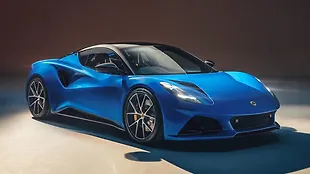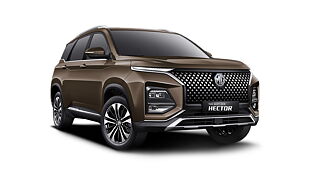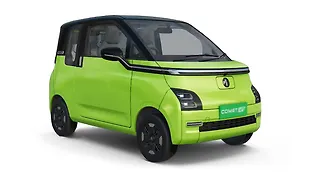Top things to know about EVs in India
The world is on a path to a technological revolution and this revolution is the age of the electric vehicle. According to a report published by the International Energy Agency in May of this year, there was a global production in excess of 5.1 million electric vehicles in 2018, an increase of two million over the previous year. In this race China leads the way with Europe and USA keeping in close tow behind. The IEA in its report “Global EV Outlook for 2019” has mooted an idea of EV30@30 which is basically a 30 per cent global market share for electric vehicles by the year 2030, so you can see that the change has begun.
Here in India, our path too is aligned with the global view, in fact, SIAM (Society of Indian automobile manufacturers) has put forward an ambitious plan of 40 per cent pure EVs by 2030 and 100 per cent by 2047 (100th anniversary of Independent India). This plan, issued in December 2017, also looks at India becoming an export hub for both electric vehicles as well components of electric vehicles. Literally, you could say that we would continue our current structure of vehicle production but with relevant actions for age of the electric vehicles.
Now, here are the important questions - How does all this affect you as an end user, a.k.a the car buyer? And, what are the things that you need to know about electric vehicles going forward that will help you make the right decisions? Well here we have answered some of the questions pertinent to India’s current stage of electric vehicles.

Are they different to drive?
No. The driving layout for most electric cars is exactly the same as one would get in any modern automatic car. There are two pedals and you need to slot the car into drive mode before setting off. In fact, the two major things that would catch first time users off guard is the lack of sound and the availability of torque instantly.
What are the benefits of using an EV?
Well first and foremost, you would be doing your bit to help conserve the environment. While the electricity grid is still dependent on coal fire and nuclear power, you driving an electric car would help in reducing your carbon footprint especially in heavily congested urban areas.
Given that most EVs in India are at the higher end of the price scale, you would be a trend setter. It would offer you the same status that one gets from buying a big SUV.

What are the roadblocks with regard to electric vehicles in India?
Charging infrastructure-The charging infrastructure at present is quite sparse and is most available in the major metro cities. All the manufacturers that produce or sell EVs in India offer home charging solutions as well charging ports at their dealerships. Companies like Tata Power have publicly announced a list of charging stations in various locations across the country but even these are mostly concentrated in the major metro cities.
Range- At present, electric vehicles offer just about half the range as compared to internal combustion powered vehicles. This in combination with the sparse charging infrastructure which makes the EV in India, presently, more of a statement for those who can afford to buy them.
Price- Given how expensive it is to produce EVs, most of the vehicles offered here/to be offered here either come through the CBU or CKD route. However, there is an advantage here which is that with a top-down approach, manufacturers will be able to offer future budget EVs using the aspirational value that the current vehicles offer.
Which companies in India produce EVs for personal use?
Currently, Hyundai offers the Kona EV for the Indian market. We have driven the Hyundai Kona EV both in India and South Korea and you can read about that here and here.
It will be followed by MG and Audi who are bringing the ZS EV and e-Tron in early 2020. Nissan is working on bringing the latest generation Leaf to India while Maruti Suzuki in collaboration with Toyota is developing budget electric vehicles for the Indian market. Renault has said that it will bring an EV to India post 2022.
While not being offered for private buyers, Tata and Mahindra sell electric versions of their Tigor and Verito sedans. Both are offered in the commercial market and are mostly popular in major metro cities.
Lastly, the big daddy of electric cars, Tesla, has hinted at offering its cars for India last year but so far has not committed any time for the implementation.
Is there government support for EVs in India?
The Centre has already put in place a plan of action for the adoption of electric vehicle in the form of the National Electric Mobility Mission Plan 2020. At the heart of this plan is the FAME (Faster Adoption and manufacturing hybrid and electric vehicles in India) scheme. The first phase of the scheme was deployed from April 2015 to March 2019 with Phase 2 now in full swing. We have detailed the FAME scheme in a separate story and you can read about that here.

I want to see pictures of future electric vehicles that will come to the India market
As we said earlier in the story, we have got behind the wheel of the Kona electric both in India and in Hyundai’s homeland of South Korea and you can read about that here and here. In addition, we have also driven the new Camry hybrid and had a ride along experience in an autonomous electric Renault Zoe.
During the 2018 Auto Expo, Mahindra had showcased a new electric powertrain as well as an electric version of its KUV100 hatchback. The latest entrant into the electric vehicle is expected to be Tata motors who recently announced a new platform called Ziptronic which will underpin a future private EV for India.
Our spy photographers have also been busy at work capturing EVs testing across Europe and America from a range of manufacturers like Volkswagen, Ford, Mercedes-Benz, Audi and BMW.
Top things to know about EVs in India
The world is on a path to a technological revolution and this revolution is the age of the electric vehicle. According to a report published by the International Energy Agency in May of this year, there was a global production in excess of 5.1 million electric vehicles in 2018, an increase of two million over the previous year. In this race China leads the way with Europe and USA keeping in close tow behind. The IEA in its report “Global EV Outlook for 2019” has mooted an idea of EV30@30 which is basically a 30 per cent global market share for electric vehicles by the year 2030, so you can see that the change has begun.
Here in India, our path too is aligned with the global view, in fact, SIAM (Society of Indian automobile manufacturers) has put forward an ambitious plan of 40 per cent pure EVs by 2030 and 100 per cent by 2047 (100th anniversary of Independent India). This plan, issued in December 2017, also looks at India becoming an export hub for both electric vehicles as well components of electric vehicles. Literally, you could say that we would continue our current structure of vehicle production but with relevant actions for age of the electric vehicles.
Now, here are the important questions - How does all this affect you as an end user, a.k.a the car buyer? And, what are the things that you need to know about electric vehicles going forward that will help you make the right decisions? Well here we have answered some of the questions pertinent to India’s current stage of electric vehicles.

Are they different to drive?
No. The driving layout for most electric cars is exactly the same as one would get in any modern automatic car. There are two pedals and you need to slot the car into drive mode before setting off. In fact, the two major things that would catch first time users off guard is the lack of sound and the availability of torque instantly.
What are the benefits of using an EV?
Well first and foremost, you would be doing your bit to help conserve the environment. While the electricity grid is still dependent on coal fire and nuclear power, you driving an electric car would help in reducing your carbon footprint especially in heavily congested urban areas.
Given that most EVs in India are at the higher end of the price scale, you would be a trend setter. It would offer you the same status that one gets from buying a big SUV.

What are the roadblocks with regard to electric vehicles in India?
Charging infrastructure-The charging infrastructure at present is quite sparse and is most available in the major metro cities. All the manufacturers that produce or sell EVs in India offer home charging solutions as well charging ports at their dealerships. Companies like Tata Power have publicly announced a list of charging stations in various locations across the country but even these are mostly concentrated in the major metro cities.
Range- At present, electric vehicles offer just about half the range as compared to internal combustion powered vehicles. This in combination with the sparse charging infrastructure which makes the EV in India, presently, more of a statement for those who can afford to buy them.
Price- Given how expensive it is to produce EVs, most of the vehicles offered here/to be offered here either come through the CBU or CKD route. However, there is an advantage here which is that with a top-down approach, manufacturers will be able to offer future budget EVs using the aspirational value that the current vehicles offer.
Which companies in India produce EVs for personal use?
Currently, Hyundai offers the Kona EV for the Indian market. We have driven the Hyundai Kona EV both in India and South Korea and you can read about that here and here.
It will be followed by MG and Audi who are bringing the ZS EV and e-Tron in early 2020. Nissan is working on bringing the latest generation Leaf to India while Maruti Suzuki in collaboration with Toyota is developing budget electric vehicles for the Indian market. Renault has said that it will bring an EV to India post 2022.
While not being offered for private buyers, Tata and Mahindra sell electric versions of their Tigor and Verito sedans. Both are offered in the commercial market and are mostly popular in major metro cities.
Lastly, the big daddy of electric cars, Tesla, has hinted at offering its cars for India last year but so far has not committed any time for the implementation.
Is there government support for EVs in India?
The Centre has already put in place a plan of action for the adoption of electric vehicle in the form of the National Electric Mobility Mission Plan 2020. At the heart of this plan is the FAME (Faster Adoption and manufacturing hybrid and electric vehicles in India) scheme. The first phase of the scheme was deployed from April 2015 to March 2019 with Phase 2 now in full swing. We have detailed the FAME scheme in a separate story and you can read about that here.
I want to see pictures of future electric vehicles that will come to the India market
As we said earlier in the story, we have got behind the wheel of the Kona electric both in India and in Hyundai’s homeland of South Korea and you can read about that here and here. In addition, we have also driven the new Camry hybrid and had a ride along experience in an autonomous electric Renault Zoe.
During the 2018 Auto Expo, Mahindra had showcased a new electric powertrain as well as an electric version of its KUV100 hatchback. The latest entrant into the electric vehicle is expected to be Tata motors who recently announced a new platform called Ziptronic which will underpin a future private EV for India.
Our spy photographers have also been busy at work capturing EVs testing across Europe and America from a range of manufacturers like Volkswagen, Ford, Mercedes-Benz, Audi and BMW.
![MG ZS EV [2020-2022] Image MG ZS EV [2020-2022] Image](https://imgd.aeplcdn.com/272x153/n/cw/ec/39348/zs-ev-exterior-right-front-three-quarter-2.jpeg?q=80)


























